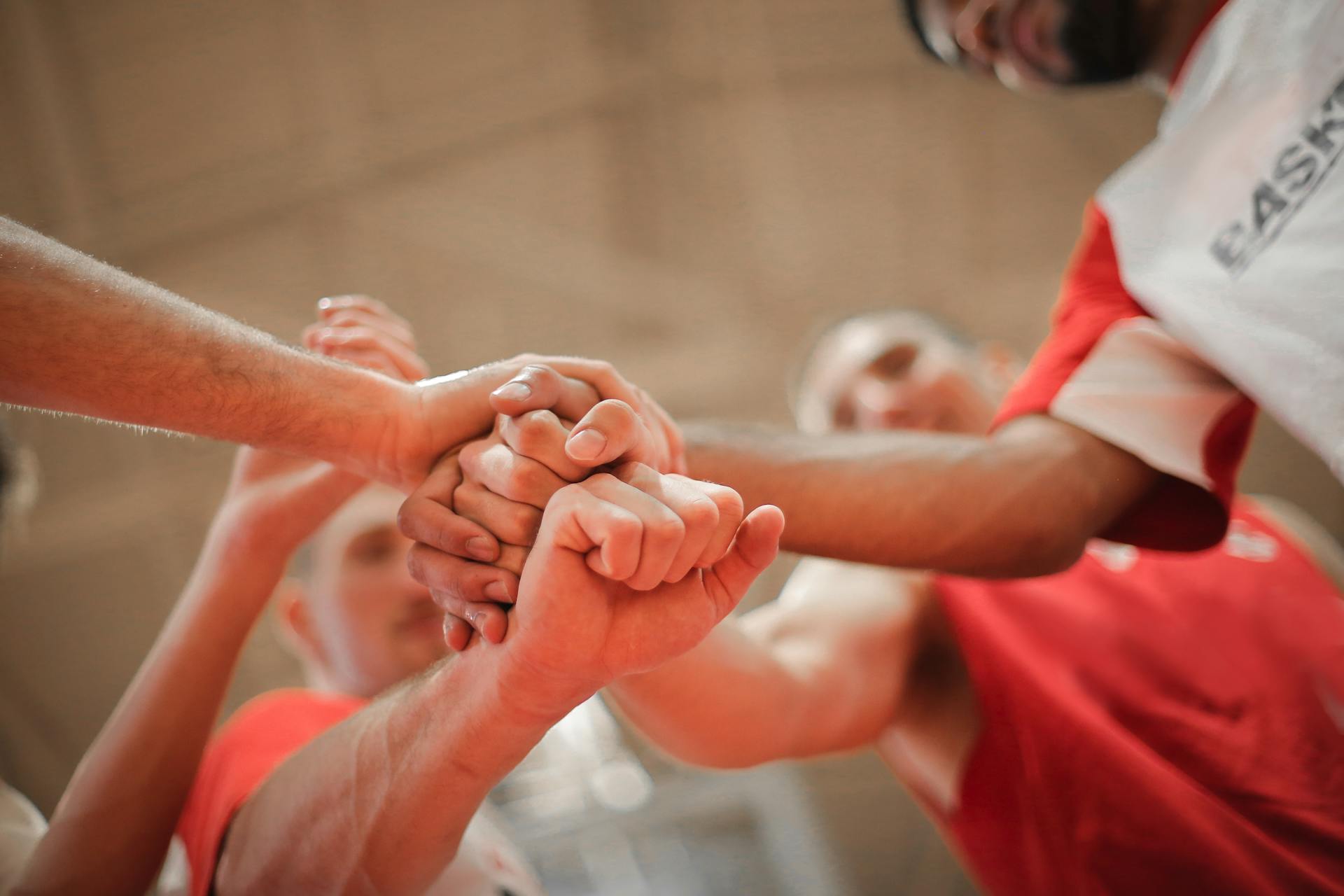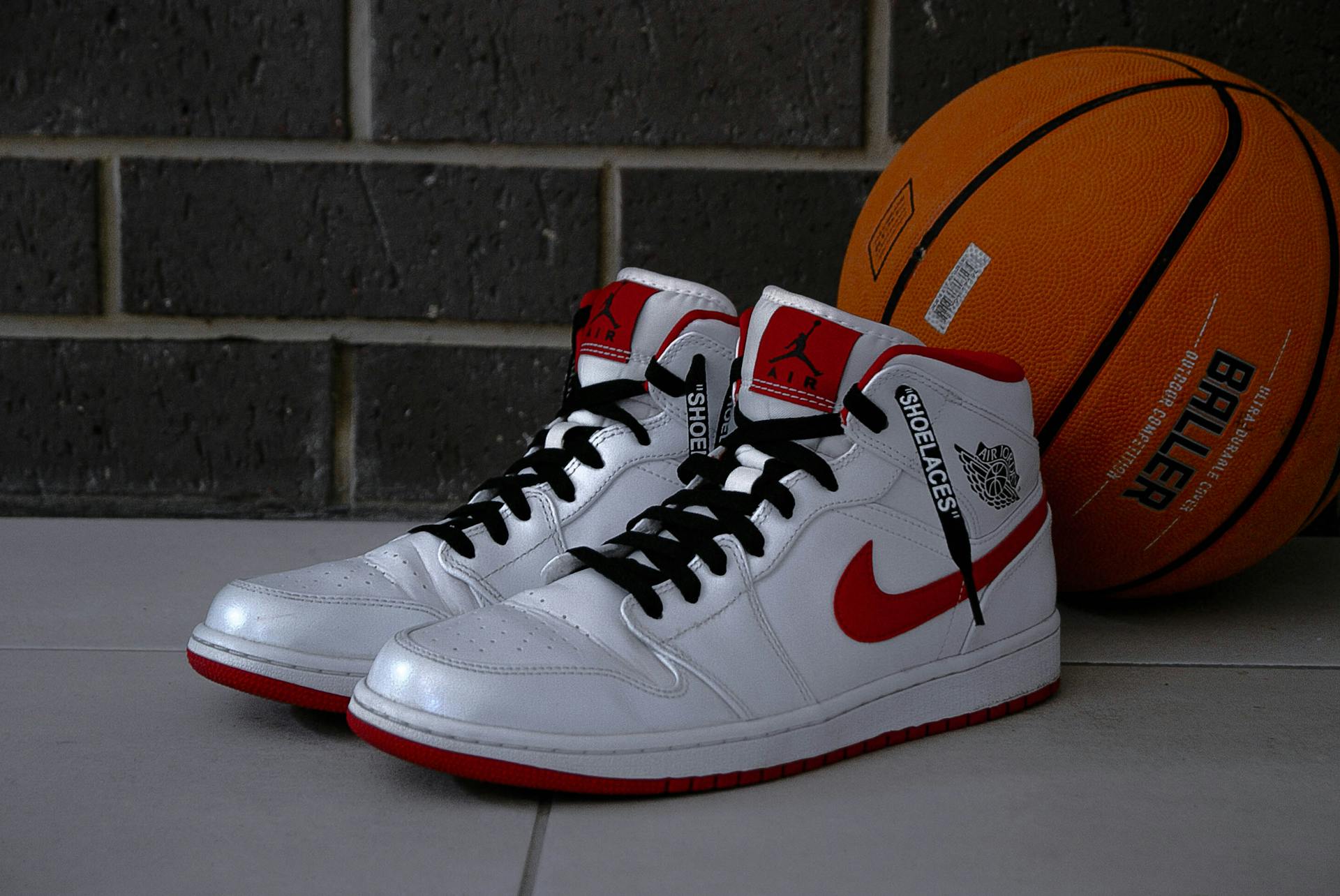
Becoming a basketball scout is an exciting and impactful job that requires knowledge, hard work, and dedication. It is typically viewed as an entry-level position in the sports industry, so obtaining this type of job may not be easy; however, if you have a passion for the sport and can demonstrate your skills with scouts, you can make it happen!
The first step to becoming a basketball scout is to become educated about the game. Take classes that cover topics like athlete evaluation, advanced statistics, and scouting ethics. Having additional certifications from organizations like NSCAA or USA Basketball are always beneficial too. This will help familiarize yourself with metric evaluations and help you stay up to date on current trends in the sport. You will also need to familiarize yourself with certain scouting terminology such as 'riser,' 'fizzler,' or 'tweener.' Additionally spending time observing games in person or online formative experiences when it comes to becoming a true student of NBA Basketball as well programs throughout Europe where basketball has become increasingly popular over tiome
Once you've obtained knowledge through research and practice analyzing players -- don't forget there are recreational leagues that offer opportunities for analysis--you may consider reaching out directly to teams who are only looking for temporary interns/scouts who want experience within their organization as well reach out using your network or apply for posted jobs on sites such as LinkedIn etc.. It's also important to note how technology has had an significant impact on how scouts evaluate talent these days including solutions such SportsTG which provides tools giving access data visualizations & statistical insights at the click of button which helps simplify fact-finding process especially when pressed under time constraints
As an aspiring scout, finding mentors who have already held similar roles in both amateur & professional sports settings might sound like daunting task yet building these relationships should somewhat be considered mandatory due its competitive landscape witch such role attracts. Secondly being involved with organizations that provide platform analyze upcoming prospects while also participating staff positions some universities summer camps associated other youth organizations allows participants learn fundamentals game off court including insight formal evaluation approaches making more prepared when applying full-time gigs apply abovementioned contacts mentioned earlier during journey
In conclusion.
Readers also liked: Baseball Game
What qualifications are required to become a basketball scout?
Aspiring basketball scouts must possess a wide range of qualifications in order to be successful in their career. A solid understanding of the game, including its rules and nuances, is essential. The scouting profession also necessitates skills related to assessing players and evaluating talent. As such, aspiring candidates should have knowledge of individual skill sets as well as team dynamics. Additionally, scouting professionals must be organized, detail-oriented people who can quickly process information and analyze data.
The educational requirement for becoming a basketball scout varies depending on the organization or team for which a person wants to work. Generally speaking however, most employers prefer a bachelor's degree in physical education or sports management with coursework focusing on player strategy and analyses, along with general sports industry knowledge. Coaching experience is also valuable since it helps with observation skills while demonstrating an understanding of the sport’s strategies and strategies needed to recruit related personnel positions within teams or organizations.
In recent years there has been an increase in technology utilization qualifications expected from those wanting to become scouts due to increasing reliance on electronic methods for recording data and scouting reports along with video platforms such as HUDL which allow multiple views of game footage from different angles simultaneously; therefore familiarity within these technologies along with the ability interpret video analysis are essential components necessary for fulfilling this role effectively. Lastly but just importantly personal qualities such as networking capabilities; perseverance, Time management/orginizational skills coupled with an analytical mind set all add considerable value during assessment processes seen throughout the industry making them highly desirable qualifcations when seeking employment opportunities within this capacity.
What type of experience do I need to become a basketball scout?
If you’re looking to become a basketball scout, having any kind of experience related to the game is key. Knowledge of basketball rules, regulations and strategies are essential for an effective scout. That being said, having a good eye for talent is what will set you apart from other scouts.
To hone the ability to accurately assess players and predict how they might perform at a higher level, it’s important to attend as many games as possible and talk to coaches about their players. Doing this can greatly increase understanding about how different teams’ systems better capitalize on their respective roster personnel. It could also be beneficial for aspiring scouts to take part in scouting events or join up with highly experienced mentors who already work in the field— this will allow aspiring scouts opportunities to observe more experienced scouts firsthand creating valuable learnings that can be applied down the line when leading your own scouting endeavors.
Each time spent observing various levels of athletes can help build up an individual’s “player library" – think of it like assembling an encyclopedia over time that becomes easier and intuitively recognizable with each person or game observed in each event attended. As you build experience through these diverse opportunities, eventually scouts begin understanding intuitively which qualities best facilitate athleticism in different contexts allowing them greater success when it comes time ranking prospects on draft board contingencies etcetera down the road via comparative evaluation processes utilized during scouting endeavors - regardless if those comparisons are pinpointed at position specific attributes or physical measurables associated with overall athleticism unlocked by correct coaching instruction/ development decisions over years prior etcetera. In short - get out there, watch a lot of ball, take notes & ask plenty questions & soon enough your ready.
A fresh viewpoint: Who to Call When You Run Out of Gas?
How much do basketball scouts typically get paid?
If you've ever wondered what goes into being a successful basketball scout—and how much money they're typically making—you're in for some good news. The pay for these sought-after professionals varies based on experience, geographic location, and the level of basketball that's being scouted.
At the most basic level, entry-level scouts can expect to make around $30,000 per year. However, those who've been in the business awhile and prove themselves competent in finding solid prospects and helping teams with personnel decisions can quickly start making more. The majority of these higher-ranking scouts make between $50,000-$70,000 annually from a team or organization looking to find talented players for their roster. Select NBA franchises have even devoted far higher annual salaries to top scouts who do excellent work—some even exceeding six figures!
To break it down further: Basketball scouts employed in larger national markets such as Los Angeles or New York typically earn more than those located in smaller markets like Portland or Houston due to the higher cost of living and greater demand of their services within those locations. Likewise, scouting service provides engaged by Colleges usually pay better than other levels due to their need for accurate evaluation on chances at both scholarship signings and transfers within NCAA Division I rule sets. Scouts who contribute positively to professional teams land contracts that come closer to $75k/$100k+ yearly salaries depending on how well they stay ahead of draft trends & predicted players’ projections according to talent evaluation criteria set out by an individual team's front office personnel decisions makers - without fail accompanying all this is Job Security & benefits packages associated with larger scale organizations (Public / Private).
Overall it pays very well if basketball scouts are comprehensive and experienced with attending player combines as well as understanding data analytics behind drafting/ developing college athletes into potential pros; It all hinges upon the decision makers perceiving value beyond just visibility & performance metrics at evaluating character traits (Work Ethic/ Intangibles). Those serious about getting a foot into this promising role should network intensely with coaches & start from the bottom rung but over time demonstrate ability offering unique perspectives while also exhibiting knowledge through keeping up on latest training data & trends (video recordings/ etc.) - Doing so will open doors one wasn't aware existed - Over time adequate dedication translating into added worth along anything else leading organically will propel an individual within reach his lead salary expectations potentially far exceeding initial predictions defined above...
If this caught your attention, see: Golf Rangefinders Work
How long does it take to become a basketball scout?
My answer to the question "How long does it take to become a basketball scout?" is that it depends on what type of scouting job you are aiming for, and how much research and other preparation you are willing to put in.
If you want to be an NCAA basketball scout, then there are both formal education requirements and practical experience you need to gain. To become a professional scout usually requires several years of experience in the field, as well as formal education in things such as understanding scouting principles, advanced analytics and general coaching. In addition, being an NCAA scout requires at least one degree from either an accredited college or university or four years of comparable work-related experience related to basketball scouting. Furthermore, attending some form of organized basketball team camp or tournament with attending coaches can help provide a jump start for individuals interested in becoming scouts – affording them the opportunity learn various aspects about professional level basketball operations first hand.
For those interested in working abroad as scouts with organizations such International Basketball Federation (FIBA) & European Basketball Association (EBAC), one must understand foreign language & cultural customs which vary by region; however FIBA does offer scouting academies which may be open for enrollment/registration at certain intervals throughout the year depending on where your geographic region is located. Prerequisite coursework can include licensures/certifications needed depending on specific job opportunities within the field upon completion and should also account when considering “how long” it may take someone to become a ‘qualified’ NBA Scout…as not everyone will face same set of credentials soon enough prepare themselves for initial employment offers that secure their entrance within profession but rather be faced with additional timetables once higher-level positions arise all over world!
You might enjoy: How Long Can You Swim after You Shock the Pool?
Where can I find job openings for basketball scouts?
Basketball scouts play an integral role in the professional world of basketball. With the ever-growing need for extraordinary talent, scouting staffs have become increasingly popular and sought after. Yet with such a demand, opportunities can be hard to come by — especially if you aren’t connected to the industry or know where to look.
Luckily, this doesn’t have to remain an issue. There are numerous online job boards and sites devoted solely to connecting job seekers with openings in various disciplines; some even specialize in sports careers. Try using your favorite search engine (like Google) and typing “basketball scout jobs open now” or “basketball recruiters hiring now” into the search bar for a list of opportunities that may fit your criteria.
Social media platforms like Twitter and LinkedIn offer useful job boards connecting employers to qualified candidates within their networks – often titled as “Jobs You May Like." Using these services is extremely helpful due to its active user base that allows applicants direct contact with recruiters and organizations involved within a specific field of expertise; even enabling them to easily access their followers who may be interested in hiring based on specific qualifications or skill sets needed that might not be found via a general web search query on basketball scout positions alone!
Finally, it never hurts having contacts within scouting organizations themselves – whether prior networking was through family friends, colleagues or previous work experiences — these contacts could certainly benefit you while searching around for employment. Being able to speak directly with someone working within any aspect of sport management will solidify credibility when inquiring about additional information on potential openings involving scouts as well!
Additional reading: Baseball Scouts Make
What do I need to know to be successful as a basketball scout?
With the professional basketball landscape changing rapidly, the need for scouts to be knowledgeable and successful has never been higher. To be effective in this role, there are several things you should know:
1. Know Your League: It's essential to have a deep understanding of each team in the league, their roster composition and development trends as well as an overall knowledge of who's doing what right now. This ranges from tracking advanced metrics to gaining insight into players tendencies on-court or during actual evaluation settings.
2. Develop Evaluation Skills: Scouts must also be able to accurately evaluate players exhibited during tryouts or game performances in order to make sound decisions about who might best fit with a certain team’s roster composition or system of play.
3. Have Good Communication Skills: Communication with teams and other players within their organization can be key since it allows appropriate timeframes for research while evaluating potential prospects when attempting trades or signings that require quick decisions due specific events (i.e., injuries, contract disputes).
4. Establish Strong Relationships With Coaches And GMs: Scouts should take initiative and initiative meetings with key people around the league such as Coaches and General Managers so they can give reliable feedback when inquiries pop up based on their evaluations data gained through previous scouting assignments/activities (tryouts/games).
By having these skills and taking advantage of them appropriately information gathered by a scout is vital for helping direct their team towards wins by selecting suitable personnel now aiding them later down the road whether its involved inside transactions for rosters spots or otherwise constructing individual player portfolios etc….
Worth a look: What to Wear When Running in Rain?
Sources
- https://gloryguy.com/how-much-do-nba-scouts-make/
- https://wisdom-advices.com/how-much-do-nba-scouts-get-paid/
- https://honestballers.com/become-a-basketball-scout/
- https://www.brooksports.com/jobs
- https://kingsandcards.com/how-to-become-a-basketball-scout/
- https://basketballpro.com/basketball-scouts/
- https://careerexplorerguide.com/nba-scout-salary/
- https://thechamplair.com/basketball/become-nba-scout/
- https://www.basketballreviewer.com/how-to-become-basketball-scout/
- https://www.hoopsaddict.com/what-it-takes-to-become-a-professional-basketball-scout/
- https://surreybasketballclassic.info/interesting/quick-answer-how-to-become-a-basketball-scout.html
- https://gloryguy.com/how-much-do-nba-scouts-get-paid/
- https://blisstulle.com/how-much-does-a-nba-scout-make/
- https://www.basketballscoutingguide.com/how-to-become-a-go-to-scout/
- https://basketballguider.com/how-to-become-an-nba-scout/
Featured Images: pexels.com


